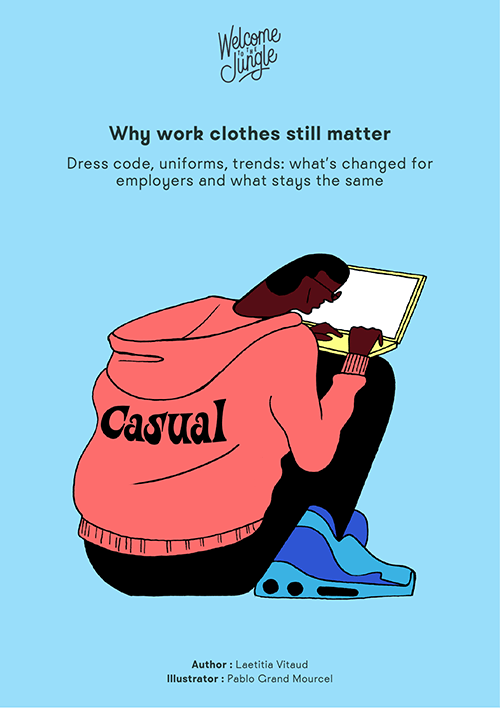Each company and corporate department has its own culture and dress code, whether this code is formally codified or informally embodied by its people (who tend to wear what their colleagues wear). Whatever your role is, you’ll always have to dress the part, to represent your company before customers, protect your body from work-related dangers, or just get a sense of belonging. Clothing matters.
Enclothed cognition refers to the effect that clothing has upon a person’s cognition, i.e. the way they think, feel and function. Have you ever noticed how dressing smart can make you feel more confident and powerful? After dressing in pyjamas for months in Work-From-Home environments, many people realise now the importance of enclothed cognition on their mental well-being and professional mindset. **Even at home, you can dress the part!**
Are dress codes officially dead? Do you still have to “dress the part” to be effective at work? Can companies no longer impose anything in terms of clothing? In this eBook, you’ll find some theory to understand how clothes impacts productivity and well-being and concrete advices to help you make the right choices and remain an attractive employer.
In this e-book
When it comes to dress codes, formal rules and rigid constraints are less and less acceptable to employees and may even damage your employer brand if your competitors have already abandoned them. General Electric, IBM, JP Morgan, Goldman Sachs… have all abandoned formal dress codes with the goal of seducing “creative class” talents.
Like Zuckerberg, many millennials are questioning the casual norm. Some are wondering whether it has gone too far. Formal clothes may make employees feel more engaged.
A Columbia Business School professor by the name of Adam Galinsky took a particular interest in the role clothing had on our cognition and performance. If you dress like a powerful person, you create the right psychological conditions to actually be powerful. For example, if you dress like a doctor, you will pay more attention during doctor-related tasks, and your performance will improve. He referred to this phenomenon as “enclothed cognition”.

